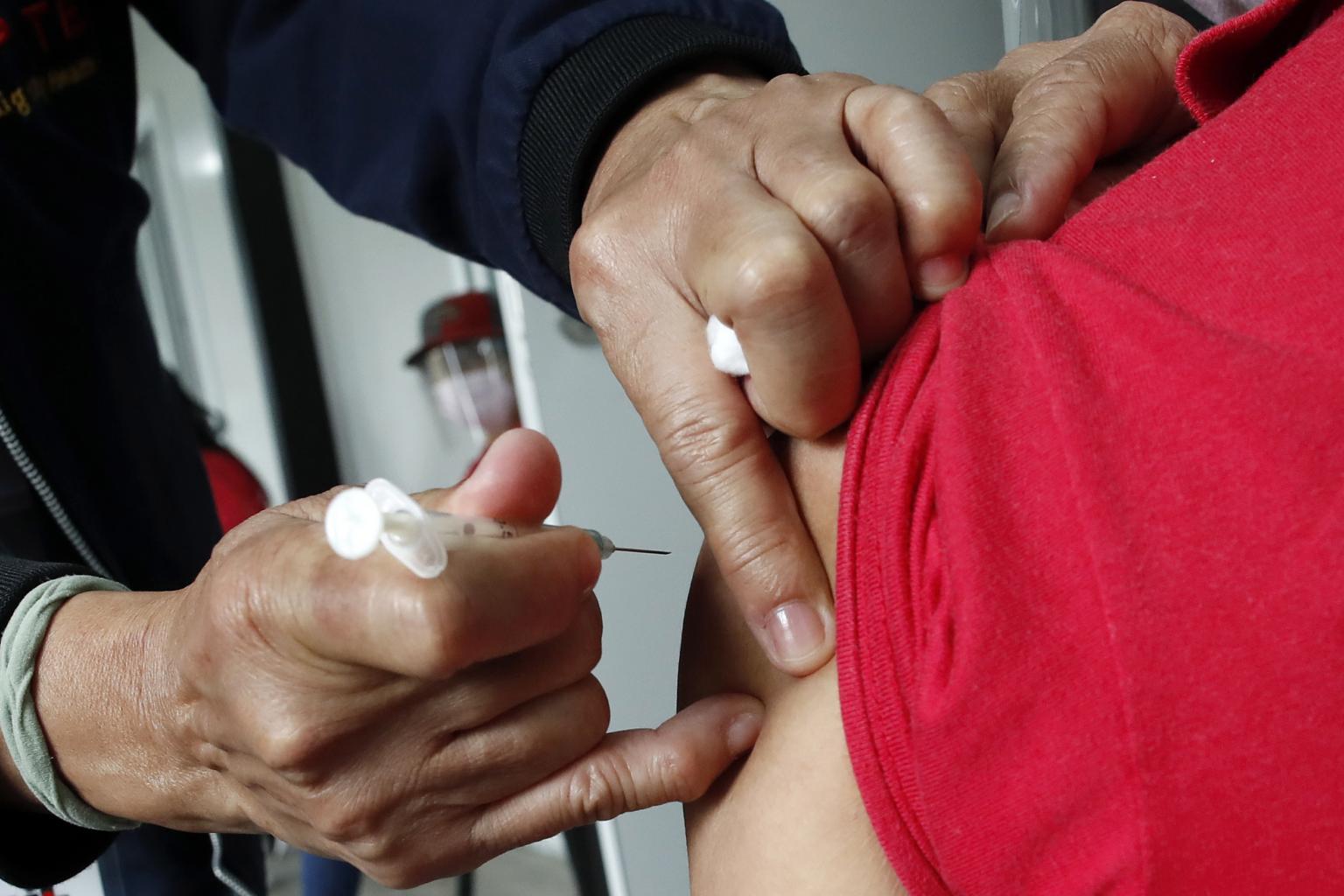Philippines is negotiating for 178 million coronavirus vaccine doses
Sign up now: Get insights on Asia's fast-moving developments

Mr Rodrigo Duterte said the vaccine race has turned into a competition among the highest bidders.
PHOTO: EPA-EFE
MANILA (BLOOMBERG) - Philippine President Rodrigo Duterte pledged to keep the economy afloat amid the coronavirus pandemic as his administration raced to secure vaccines enough for most of its adult population.
"We are sinking deeper and deeper," Mr Duterte said in a live-streamed briefing on Monday night (Feb 1). "We are trying our very best to keep us afloat."
The South-east Asian nation's gross domestic product contracted by 9.5 per cent in 2020, the most since 1946.
The Philippines, which has the second-highest number of coronavirus infections in the region, is negotiating for 178 million coronavirus vaccine doses, enough to inoculate 92 million people, Finance Secretary Carlos Dominguez said in the same briefing.
The amount is more than the target of 148 million doses this year as it takes into account delays in order delivery, Mr Dominguez said.
The government has secured US$1.4 billion (S$1.86 billion) of funding from multilateral agencies, he said.
About 3 million doses will arrive in February and the bulk in the third and fourth quarters, said Dr Carlito Galvez, who leads the vaccination programme.
The government targets to ink more supply deals this month after signing term sheets with five manufacturers to lock in about 108 million doses, Dr Galvez said at a televised briefing Tuesday.
China can start shipping Sinovac Biotech Ltd vaccines that it will donate to the Philippines once the Food and Drug Administration approves the manufacturer's application for emergency use, Dr Galvez said.
The government will prioritise healthcare workers and uniformed personnel this quarter, and economic frontliners such as drivers and food services personnel in the second quarter. The Philippines has more than 520,000 coronavirus cases as of Feb 1.
Mr Duterte said the vaccine race has turned into a competition among the highest bidders. It's not easy for South-east Asian nations to secure shots because they are "not as really as powerful as" the European Union, he said.


